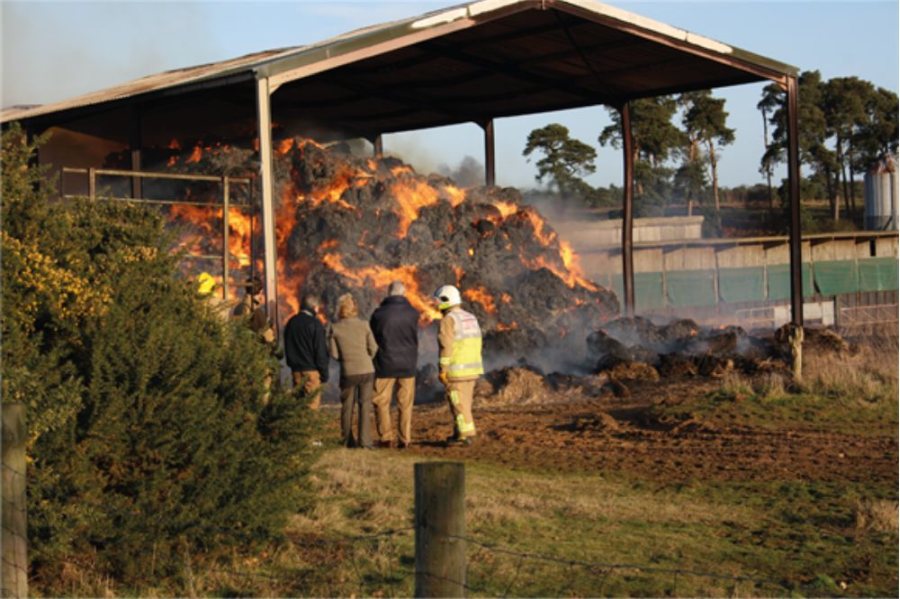
Farmers have been warned to lower the risk of barn fires following a recent spike in the number of incidents across the UK.
Issuing the warning is Mid and West Wales Fire and Rescue Service, which said it had experienced a rise in barn fire incidents requiring attendance by its crews.
This increase could be partly due to the early warm and dry weather conditions during May and June, which the service said had provided earlier hay-making opportunities.
Figures show that each year in the UK on average around 1,600 farm buildings and 85,000 areas of grassland are destroyed by fire.
To help lower these numbers, the fire service has issued a farm fire safety reminder and advice to farmers.
One piece of advice is that stored bales must not have a moisture content greater than 22%.
A Mid and West Wales Fire and Rescue Service spokesperson said: "Bales that have a moisture content of 22% or higher pose a risk of increasing in heat once stacked, leading to overheating and possible spontaneous combustion."
Baled hay, straw and bracken should have a moisture content of between 18-20% before being stacked in storage, the service added.
It added that the temperature of bales should be below 35°C before being brought off the field for storage.
The spokesperson said: "Bales with a temperature above 35°C can maintain their own heat generation to a point where spontaneous combustion can occur."
And where possible, stacks should be sited separately, away from other farm buildings, especially livestock buildings, with farmers told to keep stacks to a reasonable size, well apart and dry.
"Avoid storing fertilisers, chemicals, gas cylinders, tractors and other machinery in barns containing bales. Ensure that all electrical equipment and wiring is well-maintained," the service spokesperson said.
"Signs of bales overheating may include discolouration or browning in some areas, stacks seen to be ‘steaming’ early in the morning or late evening, the presence of a sweet, sickly smell and hay turning to a tobacco-like form."
